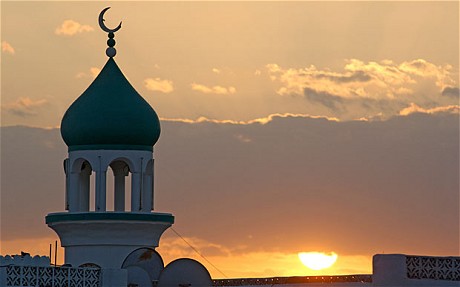
The attitude of Indian Islamist organisations and scholars towards secularism is ridden with hypocrisy and double standards
It is sad but true that there is a large degree of hypocrisy and double standards on the part of Indian Islamist organizations and scholars when in their attitude and approach towards secular democratic India.
Over the course of the last five-odd years, ever since the crisis that has erupted all across the Muslim world, in Muslim-majority and Muslim minority contexts, I have been troubled by a simple question. Do Indian Islamists accept the Indian secular state and the values and ethos of secularism only because Muslims are in a minority? If Indian Muslims were in a majority, would India have had a secular or an Islamic state? My assessment is that the latter would be true and without doubt we would have been reduced to another Pakistan.
The Islamists start by saying since I am asking a hypothetical question, it requires no answer. I then request them to give me a hypothetical reply. I request a simple yes or no which they try and avoid. But the honest ones do say ‘yes’, if India were a Muslim majority country, it would have been an Islamic state, as they claim that essentially secularism is shirk, a sin.
A few of the moderate elements go on to state that Indian secularism does find the right balance between religion and modernity and is therefore acceptable as the way ahead.
But with the rising tide of political Islam, symbolised by the crisis raging all the way from West Asia to North Africa, with the crisis gripping certain nations of South Asia, an Islamic Caliphate is very much a subject of conversation.
The saving grace here is that the Indian Muslims masses are committed to the idea and the ethos of a ‘living secularism’. The very Idea of India for them is a unique experiment in the annals of human history, unparalleled at many levels.
Indian secularism is founded on the idea, an ethos of “mutual acceptance and respect” and not mere “tolerance”, which a very weak expression indeed. All those who still tom-tom the idea of a theocratic state – Hindu, Muslim, Christian, Jewish – need to understand that modern democracies and nations have no place for any theocracy. This is so because theocracies are inherently against equal citizenship rights, against equal rights for people of all religions, against the very concept of ‘sarva dharma samabhava’, that is, mutual respect and acceptance of all faiths, religions and cultures. It’s as simple as that.
In an Islamic state only Muslims have the right and freedom to practise, preach and proselytize, convert, whilst all other religions only have only the right to practice, that too with restrictions. Forget the right to preach and convert; Dhimmis are simply not allowed to do so. Islamists who hold such notions are the very same ones who demand equal rights in India or in the western countries wherein they dwell
Theocracies cannot lay the foundation for modern nations and democracies, or even regional unions and confederations. Nations need to be built around a vision where each citizen is equal, where every religious, gender, cultural, ethnic, sect, linguistic, class, tribal diversity and identity finds itself mirrored in the Constitution in equalitarian and legal terms, and not only that of the majority faith or sect. This has and will only create a weak society, a divided nation, regions, leading to hatreds, divisions and chaos which ruling elites and foreign imperial powers will take advantage of. Thus every individual, every section of society needs to be made an equal stake-holder without any exception.
This principle also applies at the regional and global levels, even as humanity integrates and evolves. In these nations and societies, all religions are accorded due respect and constitutional space, protecting and safeguarding the rights of diverse groups and communities.
I am opposed to the idea of a theocratic state just as I am opposed to a Communist state, as the latter too has proved to be as intolerant of other ideologies and religions, as well as multi-party democracies.
In an Islamic state as propagated by the Islamists –
1) Muslims have more rights than the Dhimmis (non-Muslims), who are ‘protected citizens’ but not equal citizens.
2) In an Islamic state only Muslims have the right and freedom to practise, preach and proselytize, convert, whilst all other religions only have only the right to practice, that too with restrictions. Forget the right to preach and convert; Dhimmis are simply not allowed to do so. Islamists who hold such notions are the very same ones who demand equal rights in India or in the western countries wherein they dwell.
3) Islamists are also committed to the concept of ‘murtad’ (apostate) that a Muslim who leaves the fold of Islam and converts to another faith deserves to be killed. Where then is the concept of ‘freedom of conscience’, which they demand for themselves in secular lands?
4) Only a Muslim can become a prime minister or president in an Islamic state. Others cannot even think of rising to the highest office in the land, as that is prohibited by the Constitution of such countries. Thus out of the window goes the concept of equal rights. This is very different from the Indian ethos where we have had a Sikh as our PM for 10 years, four Muslims have been elevated to the President’s post and a Muslim may even dream of some day sitting in the PM’s chair.
In short, in a modern, secular democratic State, all citizens are equal whereas in a ‘theocraZy’, those from the majority are more equal than others.
(The writer is an activist and an expert on West Asian Affairs).